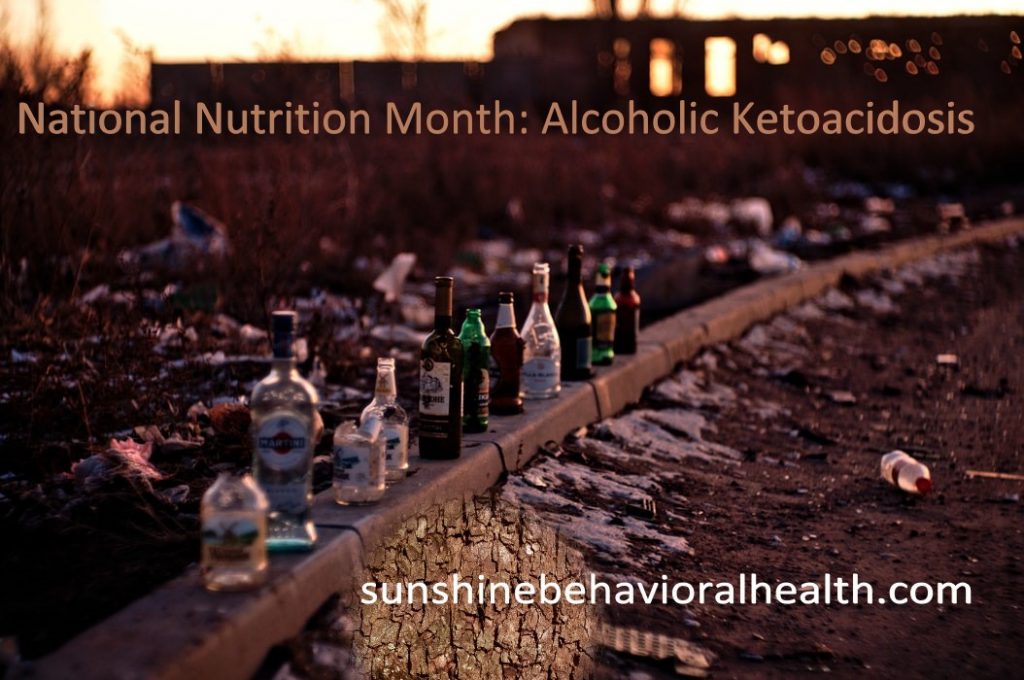
National Nutrition Month: Alcoholic Ketoacidosis
Ketogenic (keto) diets are trendy and seen by some as an effective way to drop pounds and enjoy higher energy levels. Followers of all things keto typically eat very few carbs and sugars, get more than half their calories from fat, and another 15-30% from protein. The body doesn’t get enough glucose to burn, so it begins the process of ketosis. During this process, the body melts fat stores and releases ketones, a type of acid made by the liver when the body doesn’t have enough insulin to convert sugar into energy. Some turn their noses up at the diets while others swear by them. If you have a pre-existing health condition such as diabetes, check with a doctor first before even considering ketogenic diets. Otherwise, let’s just say they’re seen as a way to potentially lose a lot of weight. Ketosis, however, can sometimes be confused with ketoacidosis. Where ketosis can result in keto breath (said to smell like nail polish remover), diarrhea, or keto flu (flu-like symptoms that may occur while the body adjusts), ketoacidosis is not just a curious or inconvenient side effect. It can be downright dangerous. It most often happens in people with untreated type 1 diabetes, but drinking to excess, and for long periods of time, can bring on the condition, specifically alcoholic ketoacidosis. For type 1 diabetics, the immune system attacks and kills insulin-making cells in the pancreas. Insulin helps convert glucose into energy. When that process doesn’t work, ketones are produced and the blood becomes extremely acidic, affecting the organs. Diabetics are in danger of coma, unconsciousness, and even death. Alcoholics also are at risk of having their pancreas stop making insulin. It can happen for a short amount of time, like after a bout of binge drinking, or go on long term. Even excess vomiting from over imbibing can bring on ketoacidosis. Without insulin, the body produces ketones that collect in the blood. When the blood becomes too acidic, serious problems can result, including liver, kidney, and brain damage. Symptoms of alcoholic ketoacidosis include:- Abdominal pain
- Agitation, confusion
- Fatigue
- Slow movement
- Labored breathing
- Loss of appetite
- Nausea, vomiting
- Dehydration, dizziness, thirst
A Message From Our CEO
Medical disclaimer:
Sunshine Behavioral Health strives to help people who are facing substance abuse, addiction, mental health disorders, or a combination of these conditions. It does this by providing compassionate care and evidence-based content that addresses health, treatment, and recovery.
Licensed medical professionals review material we publish on our site. The material is not a substitute for qualified medical diagnoses, treatment, or advice. It should not be used to replace the suggestions of your personal physician or other health care professionals.





